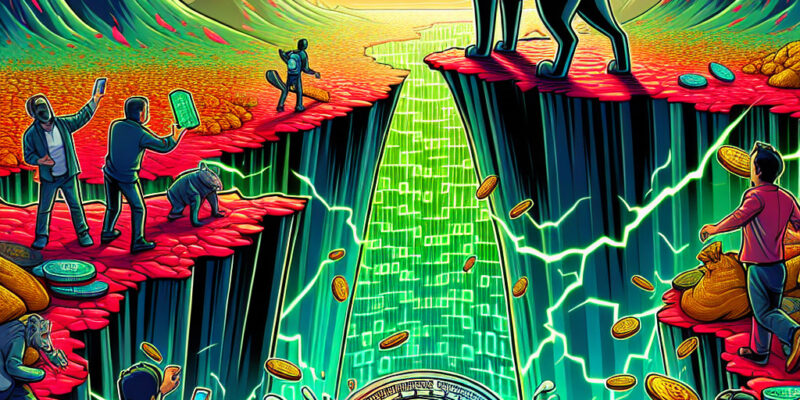Whales Sell Off: DOGE Faces Steep Dive as Critical Support Looms

Dogecoin, the once playful project born from internet meme culture, has had its fair share of dramatic price movements. Recently, this famous cryptocurrency faced a significant drop, losing around 15% of its value in just one week. This latest downturn has caught the attention of traders and analysts alike, sparking discussions about the potential implications for both current and future investors.
The decline in Dogecoin’s price is primarily attributed to the actions of large holders, commonly known as “whales.” These influential market participants have reportedly begun offloading substantial portions of their DOGE holdings. This sell-off has led to a noticeable strain on market confidence, pushing prices closer to critical support levels that traders watch closely.
In the world of cryptocurrencies, the term “support level” refers to a price point where an asset historically tends to stop its decline and bounce back. For Dogecoin, approaching these critical levels is like teetering on the edge of a precipice. Should the price fall through, it could signal further losses, amplifying the fears of a more substantial correction.
To appreciate the weight of the current situation, it’s essential to delve into the history and dynamics of Dogecoin. Initially launched as a joke in 2013 by software engineers Billy Markus and Jackson Palmer, Dogecoin quickly gained a following, thanks in part to its friendly and accessible branding. The Shiba Inu dog from the “Doge” meme became its playful mascot, winning over a community that appreciated the light-hearted nature of the project amidst a crypto space often seen as complex and serious.
Despite its whimsical origins, Dogecoin has experienced periods of explosive growth, at times even drawing attention from high-profile figures such as Elon Musk. His tweets and endorsements have previously sent DOGE prices soaring, underscoring the volatile nature of this asset and the outsized influence that certain personalities can have on its trajectory.
The recent sell-off by whales has underscored the challenges that come with such volatility. These large holders, by moving significant amounts of DOGE, can sway market dynamics dramatically, often leading smaller investors to react with caution or panic. The resulting sell pressure can create a self-fulfilling prophecy, where the expected decline prompts further selling.
Moreover, the current market scenario isn’t playing out in isolation. Cryptocurrency markets have been navigating a period of heightened uncertainty, with regulatory discussions gaining momentum worldwide. Governments and financial watchdogs are intensifying their scrutiny of digital assets, adding layers of complexity to the landscape for both seasoned traders and newcomers.
For Dogecoin enthusiasts and investors, acclimating to this volatility is part and parcel of the experience. The cryptocurrency market is akin to a rollercoaster, defined by its unpredictable highs and staggering lows. Those involved have learned to ride these waves, often with an eye on long-term potential rather than short-term fluctuations.
In the face of recent events, many in the community remain optimistic about Dogecoin’s future, drawing strength from its vibrant and active community. The Dogecoin Foundation, relaunched in 2021, has been working on initiatives to ensure the coin’s sustainable development and broader adoption. Moreover, ongoing discussions about the coin’s utility and scalability continue to foster hope that Dogecoin may carve out a meaningful niche within the cryptocurrency ecosystem.
It’s a fascinating moment for Dogecoin and the broader crypto market—one that invites both caution and curiosity. Reflecting on such movements prompts investors, both seasoned and new, to consider the broader implications of their involvement. As the landscape shifts, those engaging with Dogecoin must weigh their decisions carefully, appreciating both the potential risks and the rewards that come with navigating this captivating digital frontier.













